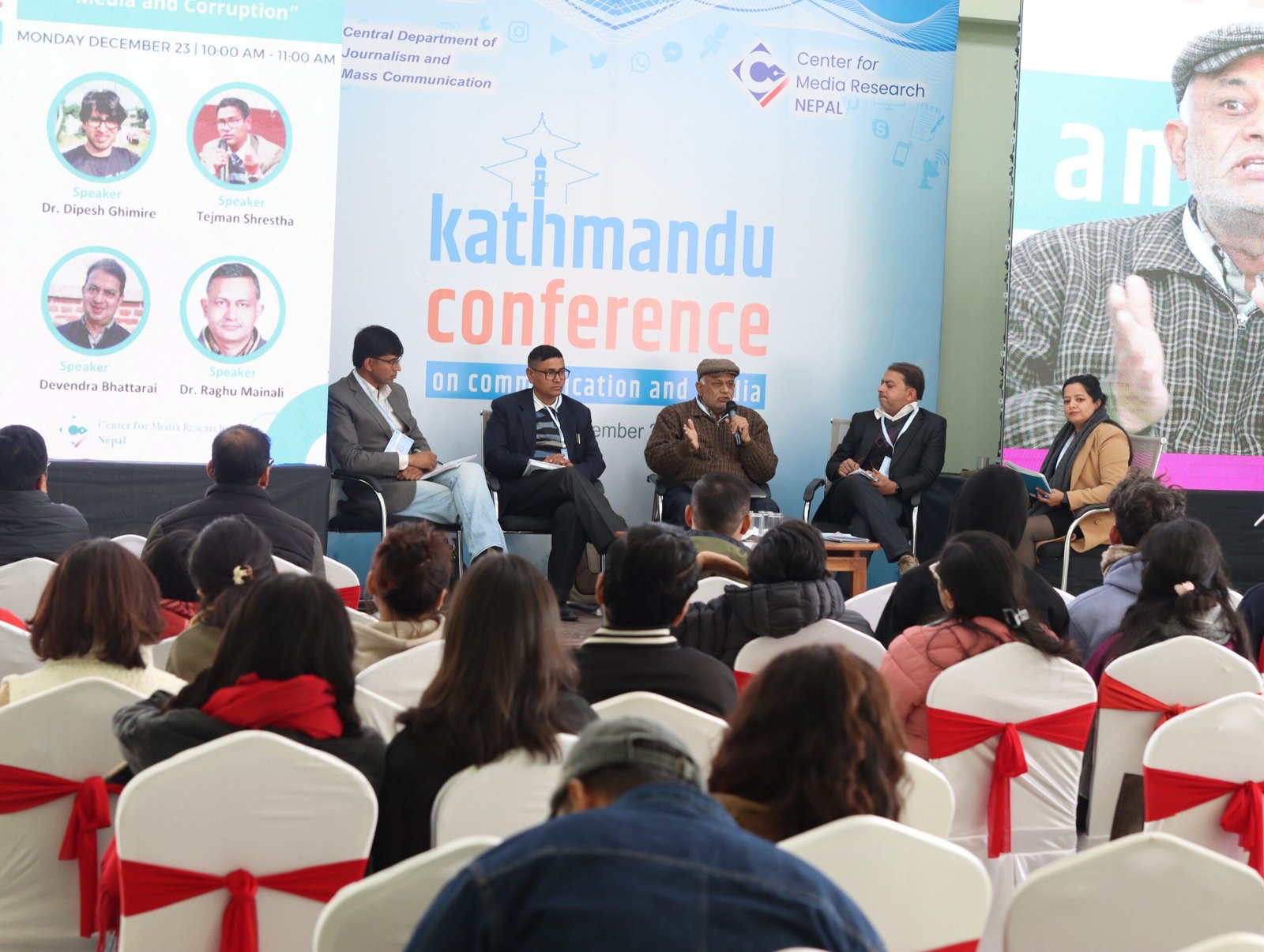On December 23, 2024, the Center for Media Research – Nepal (CMR-Nepal) organized a panel discussion on “Media’s Role in Exposing and Combating Corruption” during the Kathmandu Conference on Communication and Media in Kathmandu. Here is the summary report:
Moderator: Deepa Dahal
Panelists: Dr. Dipesh Ghimire (good government expert), Tejman Shrestha (Assistant Professor, Nepal Law Campus), Devendra Bhattarai (editor, Ukaalo) and Dr. Raghu Mainali (Professor, Nepal Open University)
Panel Summary
The conference’s second panel, “Media’s role in exposing and combating corruption,” explored the complex interrelationships among corruption, governance, and the media. The discussion emphasized the importance of accountability, transparency, and policy-driven journalism while highlighting the media’s crucial role in combating state capture, control, and systematic corruption.
The panel discussed key issues such as state capture and corruption, media’s role in combating corruption, the shift to new media, accountability and transparency, and policy and legal reforms. They emphasized the need for robust fact-checking mechanisms and legal frameworks, as well as a redefinition of the relationship between media and corporate entities. They also called for media literacy and education to help the public navigate the evolving landscape of information consumption. Additionally, they called for enacting laws to regulate media ownership and promote transparency, as without a strong legal framework, the media’s ability to act as a watchdog is severely limited.
Panel Recommendations
The Media and Corruption panel recommended:
- Strengthening legal frameworks
- Promoting media literacy
- Encouraging policy-focused journalism
- Ensuring editorial independence
- Supporting investigative journalism
They emphasized the media’s role in addressing corruption and promoting good governance. To effectively fulfill its watchdog function, systemic reforms are needed, including legal protections for journalists, greater transparency in media ownership, and a commitment to policy-driven reporting. This will foster a more accountable and independent media landscape.
Summary of Individual Panelist Speeches
Dr. Dipesh Ghimire: “Corruption is a developing problem with changing dynamics; although it may not always be obvious, its effects are felt everywhere. Numerous legislation and initiatives have been put in place to fight corruption since 2009, but the truth is that we still need to demonstrate our commitment to doing so.
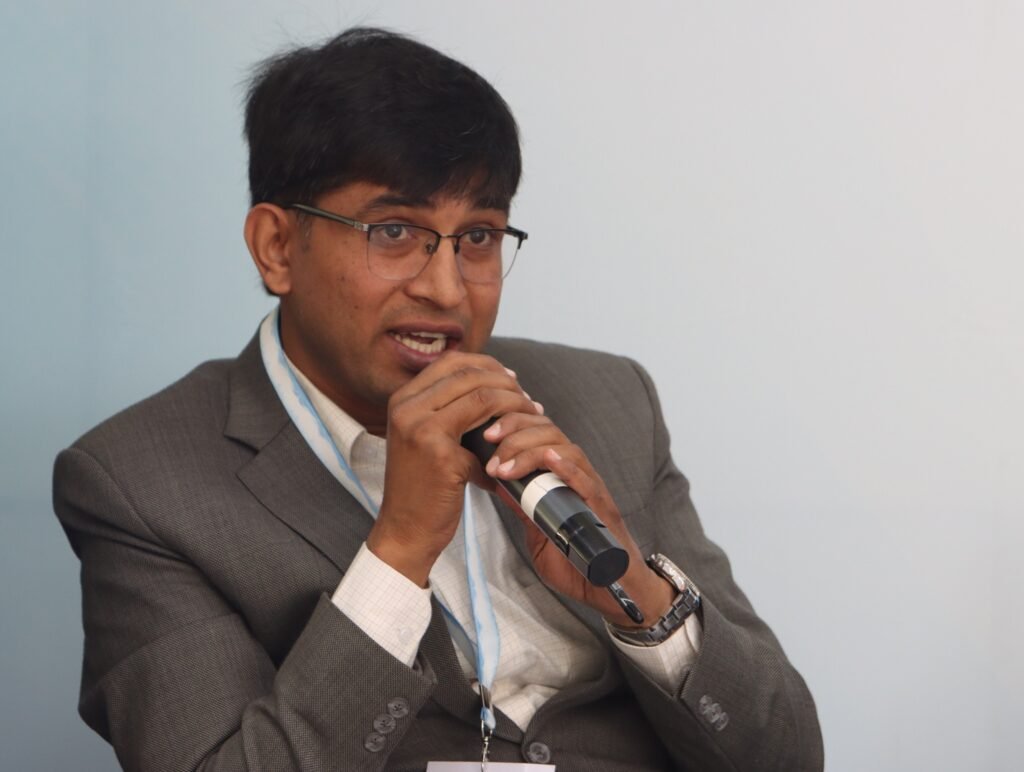
Once thought to have corruption on a smaller scale, Nepal has witnessed shocking levels of corruption, with content analysis of six important sectors revealing misconduct worth 232 Arab. This demonstrates how widespread the problem is. State capture, in which powerful entities control state institutions for their own benefit, is one of the major issues we confront. Despite efforts, accountability is still lacking and control systems are not operating as they should.
Stronger institutional structures, transparent governance, and cooperation from the public, civil society, and government are all necessary to address this. The media needs to be held accountable as well.”
Devendra Bhattarai: “Corruption is a problem that has traditionally been avoided, but it is critical that we approach it honestly and thoroughly. This issue must be addressed based on the various areas or ‘beats’ in which it manifests—whether in traditional media such as print (copy, pen) and visual media (camera) or in the emerging media environment.
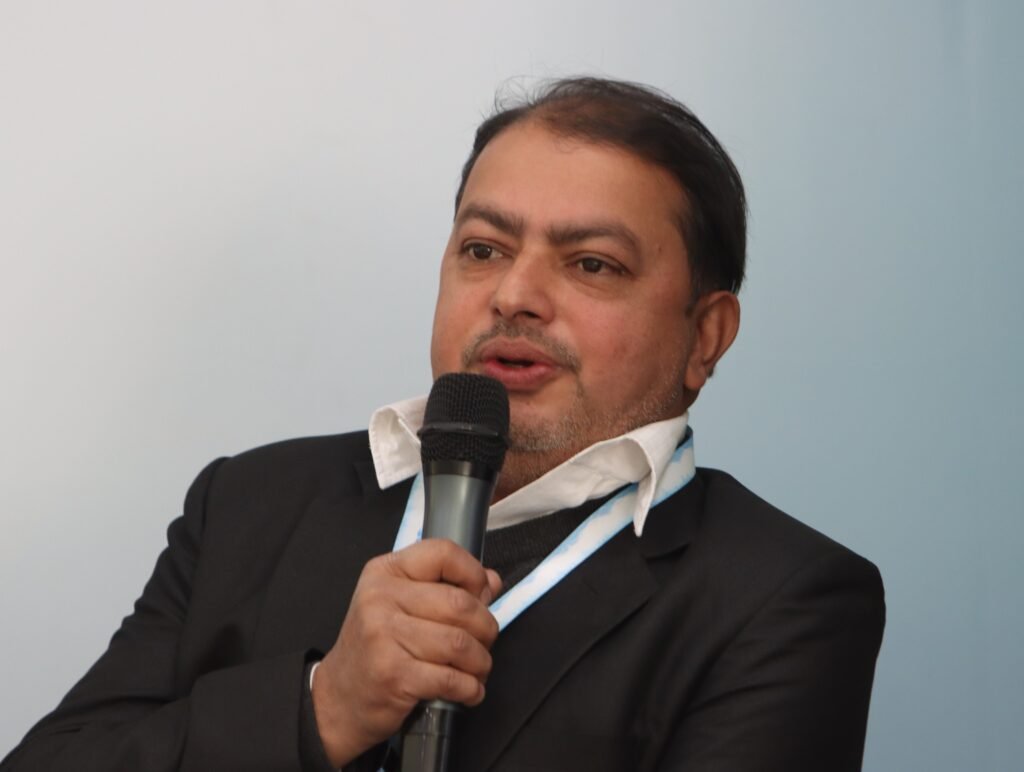
Unfortunately, areas supposed to promote accountability and transparency, such as media platforms, have been misused for unethical purposes. Fact-checking, which is critical for revealing corruption, is frequently overlooked or performed under pressure, resulting in a lack of thorough research. Furthermore, the competitive nature of the media sometimes emphasizes speed over accuracy, hurting the battle against corruption.
While opportunities and forums for combating corruption exist, they have not been utilized effectively. It is time to work harder, ensuring that fact-checking is prioritized and that media platforms are used properly to hold authority accountable. Only then can we make significant progress against corruption.”
Tejman Shrestha: “I remain skeptical of how society accesses and perceives corruption-related news. While the media is crucial in uncovering corruption, there are growing concerns regarding the veracity and accessibility of such information. Policy-level corruption, in particular, has increased significantly, which is very concerning.
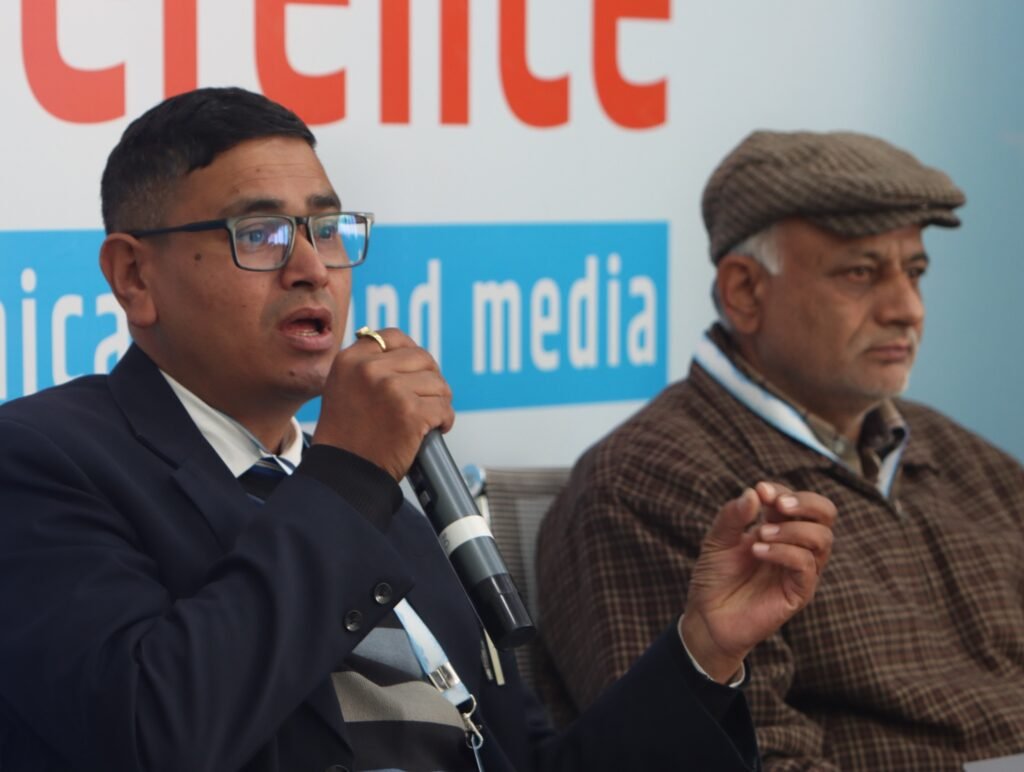
In Nepal, the separation of powers between the three tiers of government—executive, legislative, and judicial—is established by legislation. However, the effectiveness of this separation is sometimes questioned. Cabinet decisions and court assessments, which are intended to enhance accountability, are sometimes hindered by bureaucratic red tape and a lack of transparency. Furthermore, the right to privacy has frequently been misused to cover up unethical behavior, making it challenging to hold people and organizations accountable.
Justice and the pursuit of truth are hampered by this abuse of privacy rights. We must utilize the pen to draft appropriate legislation.”
Dr. Raghu Mainali: “Over time, print media has changed dramatically, moving from restriction in the days of radio and television to a more accessible and user-friendly environment. Since media has become more accessible and customized with the introduction of new technology, people have grown more attached to it. Media is now more personal than ever as anyone may upload and distribute content on their own. This change has produced a unique dynamic in which personal and traditional media follow parallel trajectories, each with distinct functions.
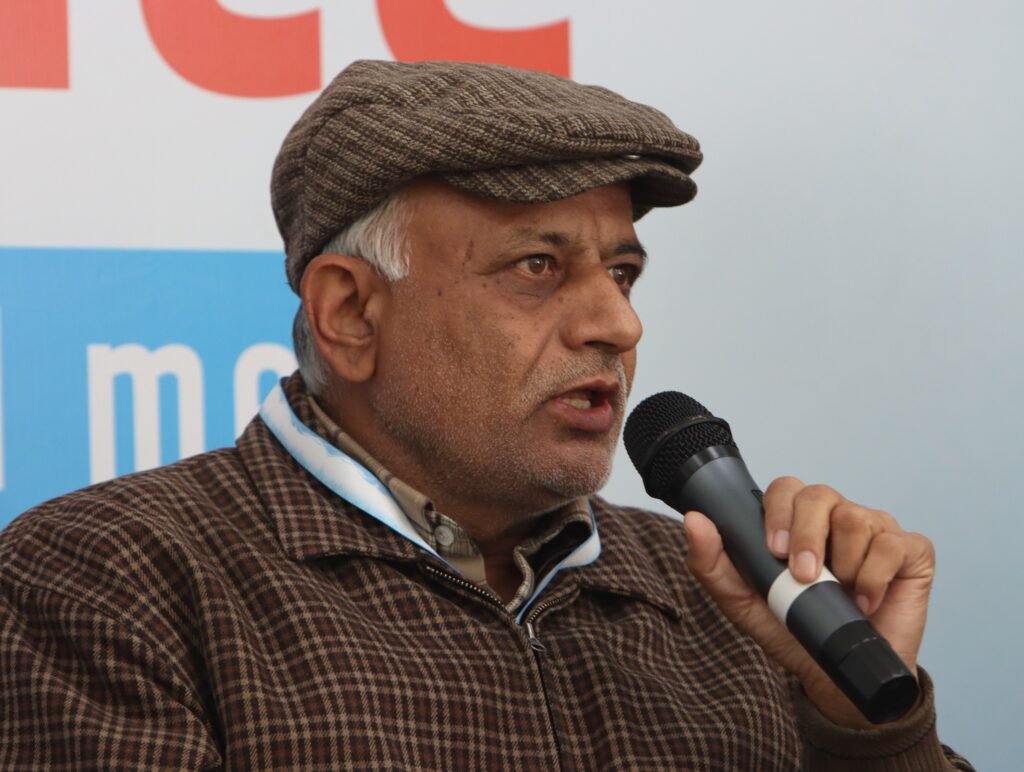
People can now interact with knowledge in new ways thanks to the transformation of the public realm. But this change has also brought attention to a crucial problem: traditional media must adapt in order to stay relevant. We must shift to a more professional media model that puts accountability, honesty, and quality above competition. Serving the public interest should take precedence over pursuing clicks or ratings. By accepting this shift, we can ensure that the media maintains its important role in society, promoting knowledgeable and engaged citizens while preserving the legitimacy and confidence that traditional media has long maintained.
He concluded that media ownership ought to be ethically transparent. Media education is necessary since the business strategy should be innovative and investigative journalism skills need to be strengthened in the current crisis.”
Moderator’s Discussion Points
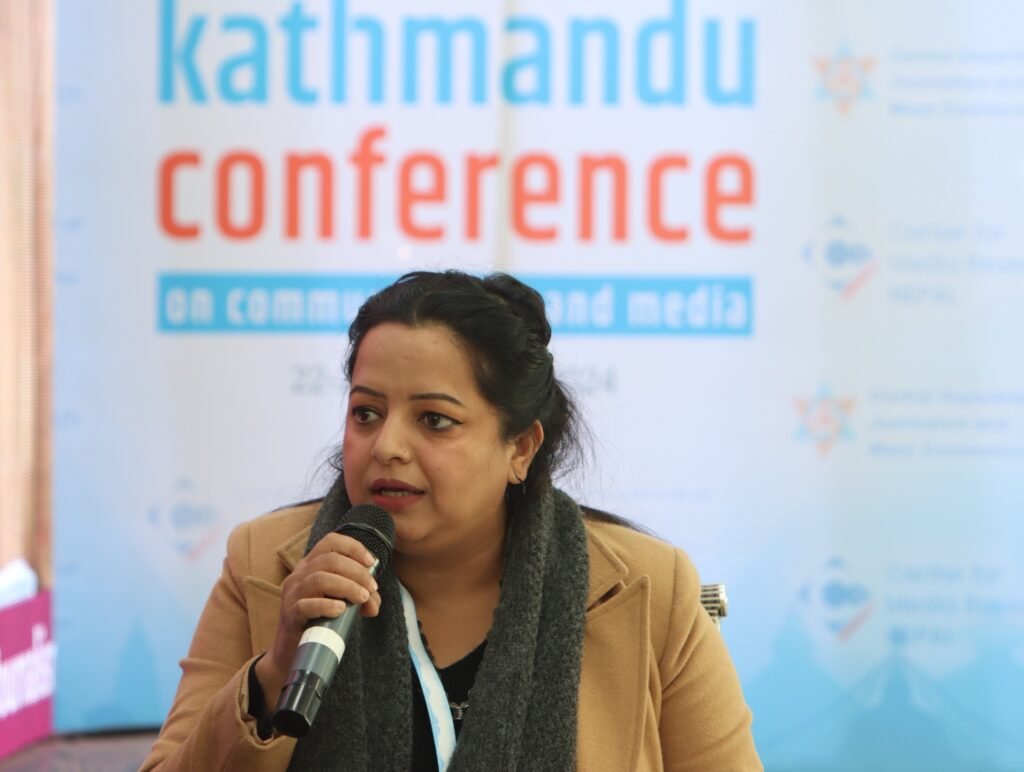
Moderator Deepa Dahal presented significant concerns by beginning with defining corruption. According to her reporting experience, corruption is the abuse of authority in a society that is becoming increasingly centralized. The general public now faces difficulties as a result of corruption.
She raised questions about how the media has fulfilled its obligation to address corruption. What role can media play in this? What part does corruption play in Nepal? She also questioned how the media has prioritized reporting on corruption-related topics and how media ought to address corruption-related issues within their coverage areas.
